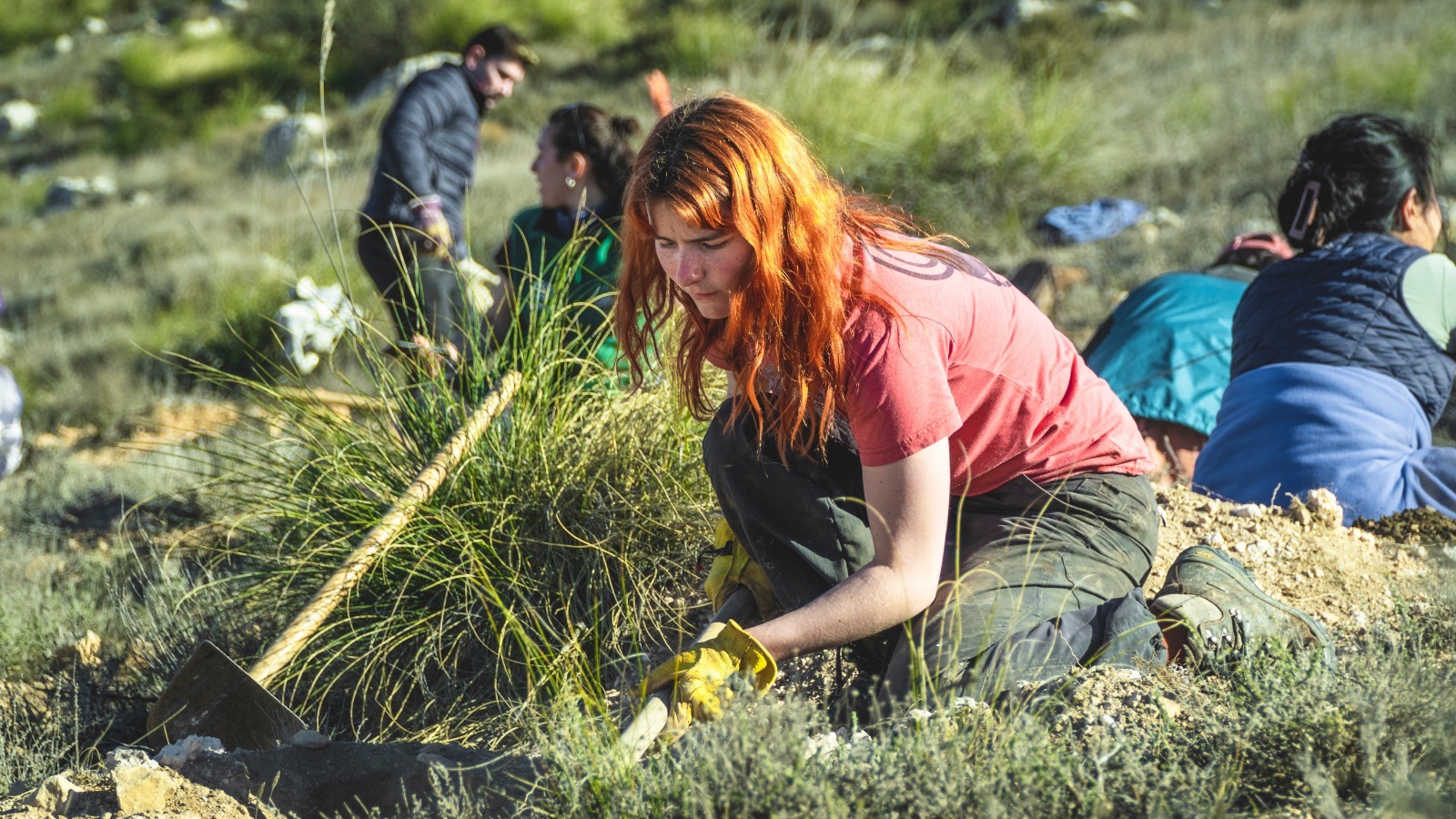Reforesting to boost regenerative agriculture
Planting trees in cultivated areas improves soil conditions, a basic pillar of the so-called regenerative agriculture, a cultivation system based on natural solutions that seeks to enrich the land in a natural way for a more "healthy and nutritional" production.
For this reason, 10,000 trees will be planted over the next few months at the La Junquera Estate (Murcia), which is committed to regenerative agriculture, in collaboration with Life Terra, a project co-financed with European funds that promotes the planting of 500 million trees in the European Union, one for each inhabitant.
In total, 10 hectares will be planted, explained the owner of La Junquera, Alfonso Chico de Guzmán, during the planting of the first trees.
"The objectives of Life Terra and ours are very much in line (...). The process has been quick, simple and very flexible. I hope to be able to continue planting with them in the coming years," he said.
Halting desertification
The farm, which covers more than 1,100 hectares, is located in the municipality of Caravaca de la Cruz, in Murcia, one of the driest areas of the peninsula and at imminent risk of desertification, mainly due to climate change and conventional agricultural practices.
In 2015, Chico de Guzmán decided to implement regenerative techniques on the farm to improve soil quality, address water scarcity and boost biodiversity.
Currently, they grow cereals, legumes, almond trees, aromatic herbs and pistachios, among others, and offer training to volunteers and entrepreneurs from all over Europe so that they can learn and implement regenerative actions.
The aim of this type of action is to enrich the soil to maintain and increase biodiversity, as well as to increase its fertility using only natural products and practices.
Unlike other farming systems, regenerative techniques maintain vegetation cover to prevent erosion and increase CO2 absorption capacity, and combine agriculture with livestock farming to increase soil fertility and make better use of water, avoiding the use of chemicals, fertilisers and heavy machinery.
In this context, the reforestation carried out in collaboration with Life Terra will boost biodiversity in the area and help to improve soil conditions, as the roots of the trees will reduce soil loss in an area where rainfall is low and, when it does fall, it is often torrential.
Creating a green layer of trees will also help to improve soil fertility, as their falling leaves will provide organic matter and shade, which will lower the temperature of the soil and therefore reduce water evaporation, according to Life Terra.
Source EFE Verde.
